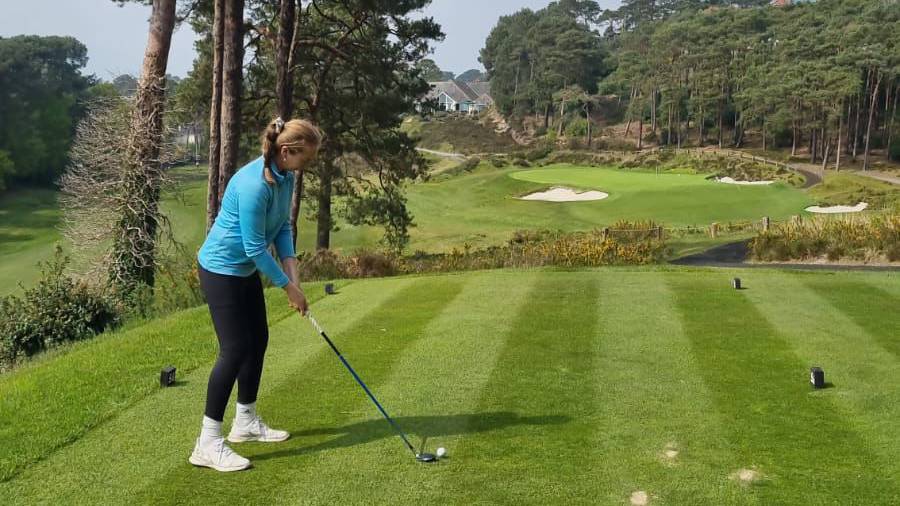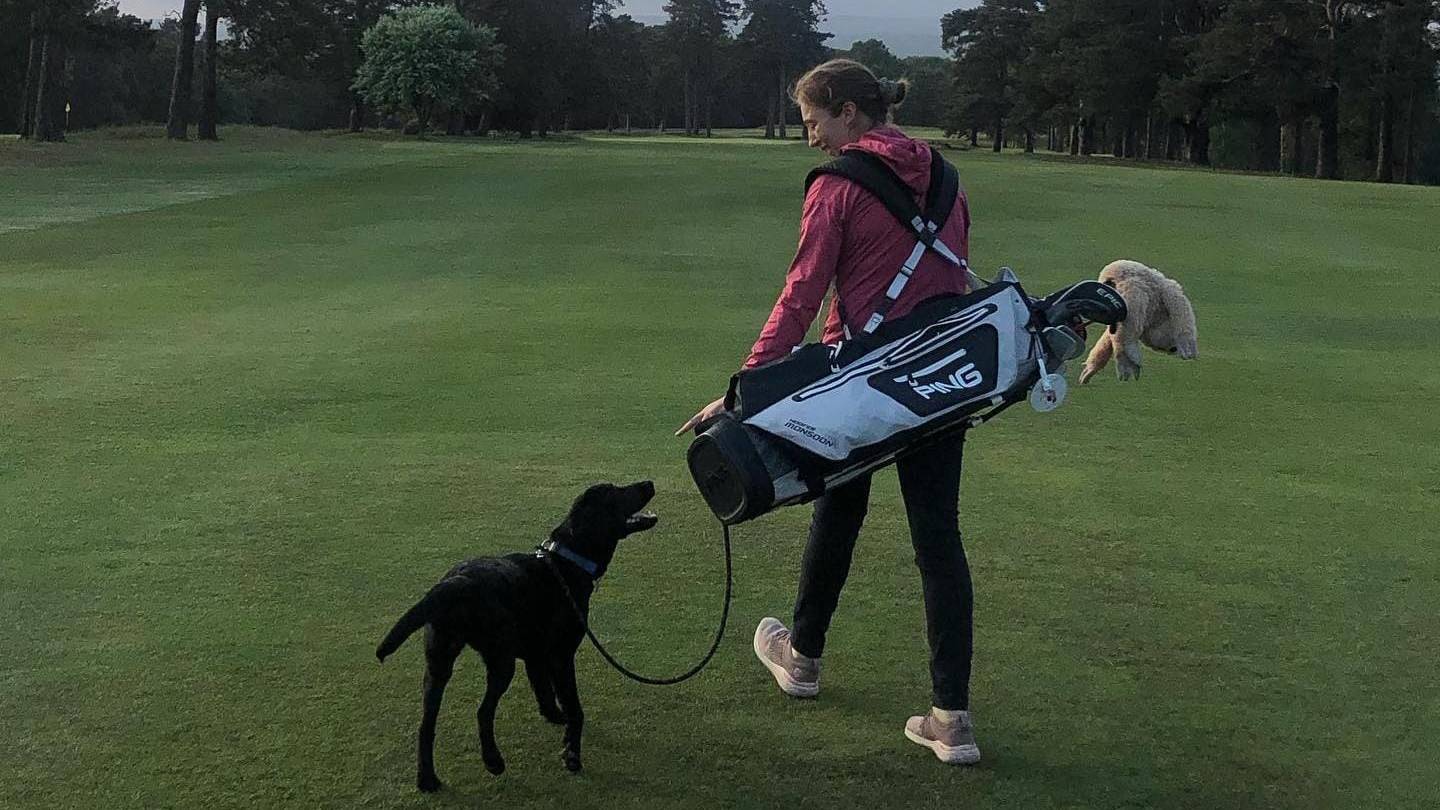'The Problem Isn’t Tradition. It’s That Tradition Hasn’t Evolved' - The Uncomfortable Truth About 'Ladies Day' In Golf Clubs
Scratch golfer Becky Gee highlights how gatekeeping at golf clubs is not helping to grow the women's game


There’s a line I keep coming back to: I’m not trying to tear down tradition. I’m just asking for the same access, the same visibility, the same chance to compete and connect.
I wrote that in The Telegraph last month, after what felt like a lifetime of biting my tongue. Since then, my inbox has been full: messages from scratch golfers sidelined from their club’s flagship events, women who’ve burned through annual leave just to play, and younger players quietly wondering if they’re the problem or if the system is.
For many women, Tuesday wasn’t just a tee time. It was hard-won ground. Especially for older generations, that midweek slot offered something vital: structure, connection, and a sense of belonging. At a time when women paid lower fees, had limited tee-time access, and were treated as guests rather than members, Tuesday was theirs. And it mattered. It created community and safety in clubs that often didn’t feel welcoming.

Becky Gee uses most of her annual leave to compete in golf events
But what was once a lifeline has, in many places, become a limit. Too often, Tuesday is now held up as proof that women already have “their day,” and used as a shield against progress and a reason not to offer more. And the assumption that Tuesday works for everyone? It doesn’t. The problem isn’t tradition. It’s that tradition hasn’t evolved.
I grew up playing at a course where weekday and weekend competitions were open to everyone. No ladies’ day. No gatekeeping. Just golf. The women’s section thrived not because it had its own slot, but because it was part of the club’s core.
That experience left me with two things: a clear view of how golf thrives when it’s built around modern lives, and utter bewilderment that some traditional clubs still behave as if working women don’t exist. Often doing so with impunity, as if no one expects better.

Becky Gee on the golf course with her labrador, Luffy
At my current club, most events now have a weekend option. But two of the most prestigious women’s competitions remain locked to a Tuesday with no alternative. And that’s not unusual.
Subscribe to the Golf Monthly newsletter to stay up to date with all the latest tour news, equipment news, reviews, head-to-heads and buyer’s guides from our team of experienced experts.
This year, I’ve used most of my annual leave just to compete, whether that’s club fixtures or external scratch events. That’s my choice. But when the men’s equivalent runs on a Saturday and mine runs midweek, it doesn’t always feel like a fair one.
I’ve heard from women across the UK facing similar barriers: those who can’t schedule matches on Saturdays, working women expected to support the section but only on “ladies’ day,” and women who try to compete at weekends and face resistance, quiet or overt.
I’ve lived there too. And it’s a lonely house to occupy. These aren’t isolated stories. They point to a deeper design flaw. And the uncomfortable truth? Some of the hardest pushback hasn’t come from men, but from those who see Tuesday as something to protect. I understand that. I respect the space it provided. But when a tradition becomes more of a drawbridge than a doorway, we have to ask: who’s being left outside?

Too often, it’s younger women. Women who work full-time. Women just discovering the game. Women who don’t fit the mould the system was built around. And while careers, childcare and cost all play a role in why some people drift away from club golf, the systems in place rarely make it easy to return.
That’s not just a hunch - it’s in the numbers. The UK has some of the lowest female golf membership rates in Europe. Just 14% of members in England are women, and only 12% in Scotland. In contrast, Germany sits at 35% and Austria at 38%. The difference isn’t interest. It’s infrastructure. In countries doing better, golf is framed as a family sport. And critically, competitions are scheduled to include people, not exclude them by default.
And here’s the irony: golf is sitting on a goldmine. The R&A has reported a surge in younger and more diverse players taking up the game in non-traditional formats, like driving ranges and indoor simulators, where women now make up 47% of participants.

Non-traditional formats, women make up 47% of participants
These are spaces that often feel more welcoming, more flexible, less bound by outdated rules and unspoken hierarchies. The takeaway is clear. When it comes to clubs, the issue isn’t appetite. It’s access. It’s the environment.
And no, the answer isn’t “just start your own comps,” a refrain I’ve heard far too often. That response assumes the system is neutral. It’s not. When the calendar, course access and culture all tilt one way, asking women to build something separate is naïve at best, cynical at worst. So what needs to change?
Weekend availability for women’s events shouldn’t be an afterthought. It needs to be a given. Clubs must hold firm when a vocal minority complains about women’s access or leadership. A few dissenting voices in a community of hundreds are never a good enough reason to sideline an entire group of players. And if clubs won’t act, governing bodies must. Inclusion shouldn’t just be rhetoric or campaigns. It needs to be a clear, enforced standard. Change requires courage at every level.
I’m not asking to take anything away. I’m asking us to build better - with weekend access baked in for all, with flexibility, with a game that makes space for more than one kind of woman. I’m asking us to be honest about who the current model still serves, and who it shuts out. Because until we fix that, we’re not growing the game. We’re gatekeeping it.
Becky Gee is a freelance writer and communications specialist, formerly Communications Manager at the anti-discrimination charity Kick It Out. A scratch golfer and Surrey Women’s Champion in 2022, she writes about the intersection of sport, equity and access, and is passionate about making golf more inclusive for women and underrepresented groups. When not writing, she can usually be found walking the course with her Labrador, Luffy.
You must confirm your public display name before commenting
Please logout and then login again, you will then be prompted to enter your display name.
